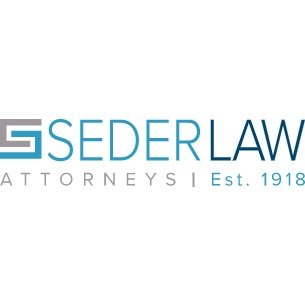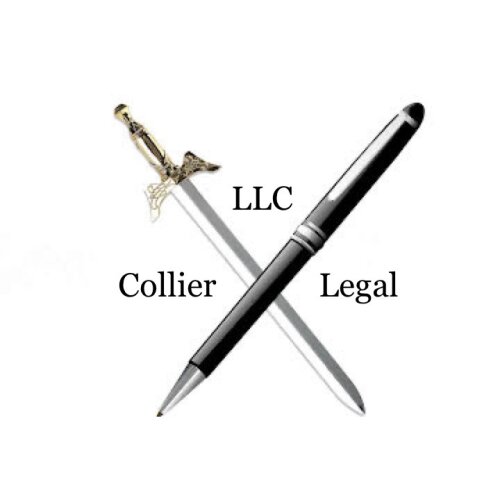Best Trademark Lawyers in United States
Share your needs with us, get contacted by law firms.
Free. Takes 2 min.
Or refine your search by selecting a city:
List of the best lawyers in United States
About Trademark Law in United States
Trademark law in the United States is regulated by both federal and state governments to protect brand names, logos, slogans, and other identifiers of goods and services. The primary function of trademark law is to prevent consumer confusion by ensuring that trademarks are unique to each brand and that the source of goods or services can be easily identified by the public. The Lanham Act is the main federal statute governing trademarks, and the United States Patent and Trademark Office (USPTO) is the federal agency responsible for trademark registration and maintenance.
Why You May Need a Lawyer
There are several situations where legal assistance in trademark matters can be crucial:
- Trademark Search and Registration: Ensuring that a new trademark is unique and doesn't infringe on existing marks is a complex process involving thorough research and paperwork.
- Trademark Infringement: If someone else is using your trademark or something similar without permission, it can be difficult to enforce your rights without legal help.
- Opposition and Cancellation Proceedings: Navigating disputes with other trademark holders, especially formal proceedings like oppositions and cancellations, often requires legal expertise.
- Licensing Agreements: Drafting and negotiating agreements that allow others to use your trademark needs careful legal consideration to protect your interests.
- Internet and Domain Name Issues: With the increasing use of the internet, protecting your trademark in digital spaces requires specialized legal strategies.
Local Laws Overview
Trademark law in the United States has several key components that are critical to understand:
- Federal vs. State Registration: While federal registration through the USPTO provides nationwide protection, state registration might be useful for localized businesses. Each state has its own rules regarding trademarks.
- Common Law Rights: Even without formal registration, businesses may gain "common law" trademark rights just by using a mark in commerce.
- Distinctiveness: A trademark must be distinctive to be registrable and protectable, meaning it should uniquely identify the source of a product or service.
- Non-Registrable Marks: Certain types of marks cannot be registered, such as generic terms, deceptive marks, and those that resemble established trademarks.
- Maintenance and Renewal: Trademarks must be maintained and renewed regularly to retain protection, and legal counsel can assist with these requirements.
Frequently Asked Questions
What is a trademark?
A trademark is a symbol, word, phrase, design, or combination thereof that identifies and distinguishes the source of goods or services of one party from those of others.
How do I register a trademark in the United States?
You can register a trademark by filing an application with the United States Patent and Trademark Office (USPTO). This involves several steps, including choosing a mark, identifying the class of goods or services, and filing the application.
What is the duration of trademark protection?
Trademark protection lasts as long as it is used in commerce and is renewed periodically. For registered trademarks, this generally means renewing every ten years after the initial registration date.
Can I register a trademark without a lawyer?
Yes, you can file a trademark application without a lawyer. However, because the process can be complex, many opt to hire a lawyer to ensure all requirements are met effectively.
What is the difference between a trademark and a copyright?
A trademark protects brand identifiers like logos and names, whereas copyright protects original works of authorship like books, music, and paintings.
What happens if someone infringes on my trademark?
You may file a lawsuit in federal court and seek remedies ranging from injunctive relief to monetary damages. Consult a lawyer to discuss the specifics of your case.
Can I use a trademark that is similar to an existing one?
It depends on the similarity and the likelihood of consumer confusion. Legal advice is often needed to assess these factors and avoid infringing others' trademarks.
What is a service mark?
While a trademark identifies goods, a service mark is used to identify and distinguish the source of a service rather than a product.
How long does it take to receive a trademark registration?
The process can take several months to over a year, depending on the complexity of the application and any issues that arise during examination.
What are the costs involved in trademark registration?
The costs can vary widely, depending on the complexity of the registration and whether legal counsel is employed. USPTO filing fees also factor into the overall cost.
Additional Resources
Here are some valuable resources and organizations you may find helpful:
- United States Patent and Trademark Office (USPTO) - Official site for trademark registration and information
- International Trademark Association (INTA) - Provides resources and advocacy for trademarks
- Local state trademark offices for additional state-level registration information
- American Bar Association - offers a range of resources and guidance on trademark legal issues
Next Steps
If you require legal assistance with a trademark issue in the United States, consider taking the following steps:
- Consult a Trademark Attorney: Find a lawyer specializing in trademark law to assist with search, registration, or any infringement issues.
- Conduct a Trademark Search: Before filing any trademark application, conduct a comprehensive search to ensure your mark is unique and registrable.
- Prepare Your Application: Gather the necessary materials and prepare your application for submission to the USPTO or state office.
- Understand Your Rights and Responsibilities: Familiarize yourself with the responsibilities of maintaining a trademark and the rights you are entitled to as a trademark holder.
- Consider Joining Professional Organizations: Organizations like the INTA can provide ongoing support and resources for trademark-related matters.
Lawzana helps you find the best lawyers and law firms in United States through a curated and pre-screened list of qualified legal professionals. Our platform offers rankings and detailed profiles of attorneys and law firms, allowing you to compare based on practice areas, including Trademark, experience, and client feedback.
Each profile includes a description of the firm's areas of practice, client reviews, team members and partners, year of establishment, spoken languages, office locations, contact information, social media presence, and any published articles or resources. Most firms on our platform speak English and are experienced in both local and international legal matters.
Get a quote from top-rated law firms in United States — quickly, securely, and without unnecessary hassle.
Disclaimer:
The information provided on this page is for general informational purposes only and does not constitute legal advice. While we strive to ensure the accuracy and relevance of the content, legal information may change over time, and interpretations of the law can vary. You should always consult with a qualified legal professional for advice specific to your situation.
We disclaim all liability for actions taken or not taken based on the content of this page. If you believe any information is incorrect or outdated, please contact us, and we will review and update it where appropriate.
Browse trademark law firms by state in United States
Refine your search by selecting a state.
















